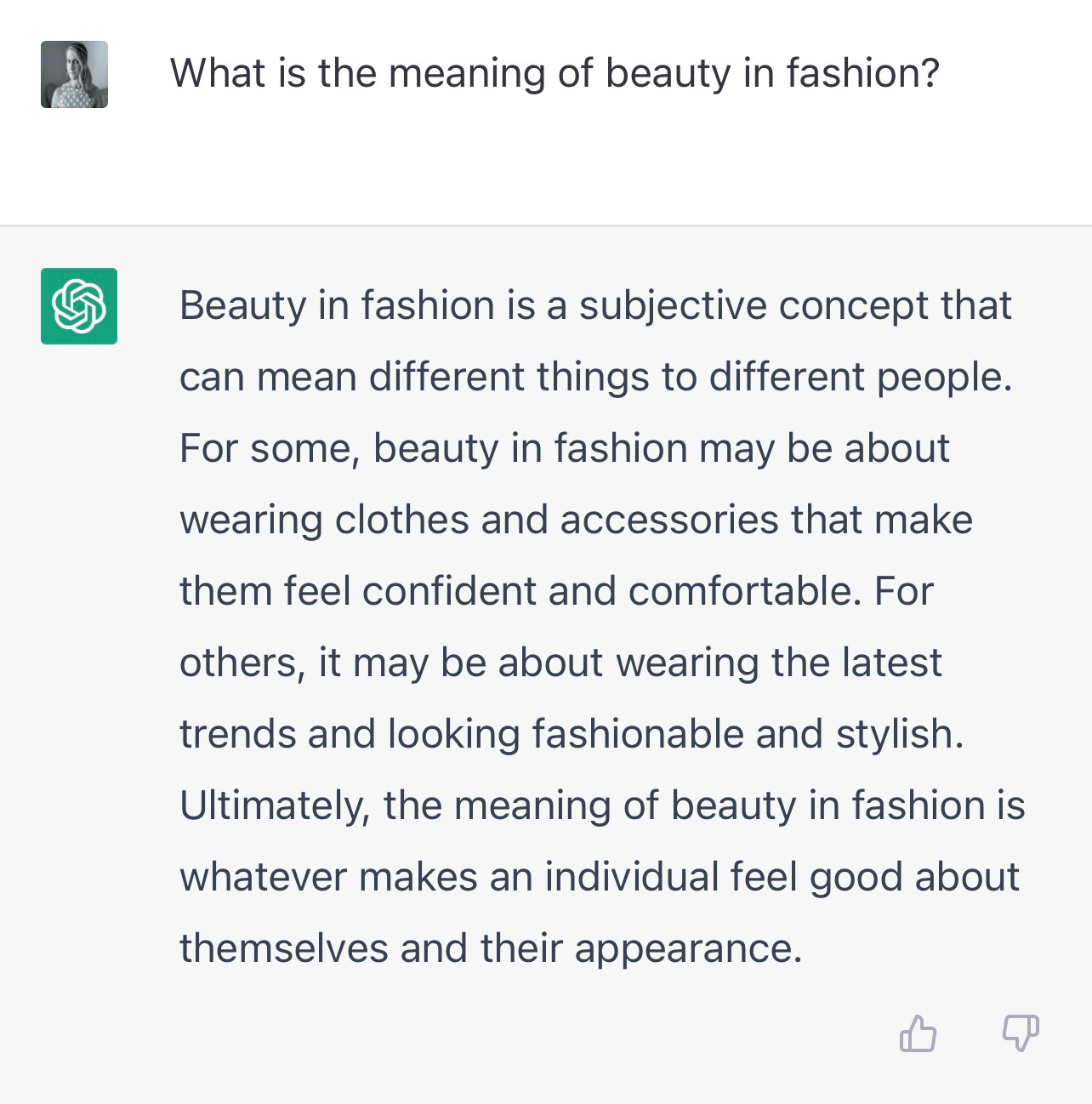AI and the Future of Fashion Writing
Will AI tools like ChatGPT put fashion writers and content creators out of a job?
There is a lot of buzz around OpenAI’s recent release of ChatGPT. Many enthusiasts on social media are pronouncing it the end of the age of the content creator and are prognosticating on the grim future of writers, marketers, and journalists.
As a content strategists and writers, we are not worried. We do not think AI is “coming for our jobs.” Quite the contrary, we think AI is an exciting tool that will revolutionize the world of content in a positive way.
But, you’ve got to know how—and when—to use AI tools. These tools come with a lot of caveats and are only as good as the inputs they receive. They are well known to produce highly biased, even racially-charged content under certain circumstances.
The wider adoption of AI-generated content for business and consumer applications needs human oversight when it comes to strategy, editing, ethics, and, well, nuance.
BUT, we live in a content-centric world. Consumers expect brand marketing to keep up with the 24/7 pace of content across multiple platforms. Writing brand authentic content at scale is challenging.
Tools like ChatGPT have the potential to be a useful tool for brand marketers and content creators alike. It also offers ways for brands to streamline content operations across the board, which may result in more automated solutions for lower-level content creation like social media and marketing copy across platforms.
However, for fashion writing, AI has a long way to go to provide the context, insight, and knowledge of human writers.
Take the prompts we wrote: “What is the meaning of beauty in fashion?” and “How good are Chanel’s designs?” The questions are admittedly abstract but both are fundamental to fashion.
The resulting paragraphs aren’t bad; but they aren’t good. They lack context, examples, and supporting details. The paragraph about Chanel mentions nothing about Coco Chanel or the brand story. In both cases, the tone of the writing is friendly but impersonal; and the structure is at best formulaic. The writing severely lacks personality, even though the language is clear and straightforward.
In short, AI writing—at least for the examples we tried—lacks flair, individuality, and, well, soul.
Our conclusion: Spend some quality time with AI tools. Play around with the prompts you use. But, don’t hand over your research-based writing or brand marketing to an AI tool any time soon, at least not without a human editor to go with it.
AI tools should be used as part of a wider content strategy to communicate with target audiences in a brand authentic, meaningful way.





